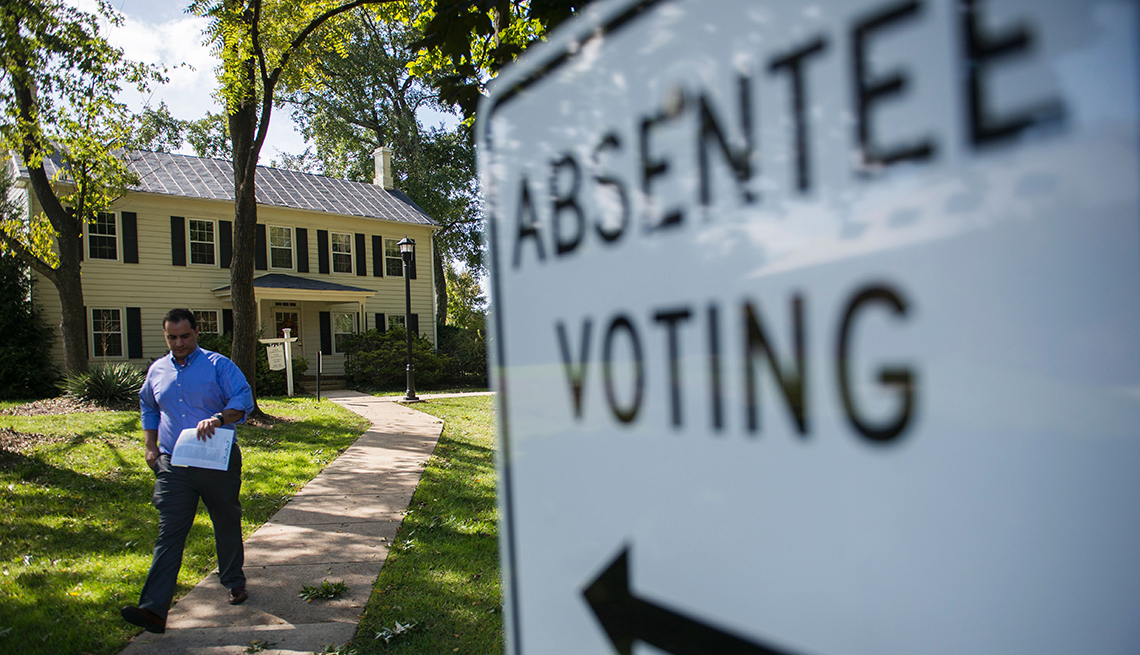AARP Hearing Center

Despite the widespread popularity of no-excuse absentee voting in Michigan, a ballot measure that might hit the state Legislature this spring could make it harder to do.
If approved by lawmakers, Secure MI Vote would require residents who apply for absentee ballots to include their Michigan driver’s license or state identification card number, or the last four digits of their Social Security number, not just their signature.
The proposal needs 340,047 citizen signatures—8 percent of the votes cast for governor in the last election—to go before lawmakers, who can enact it via a veto-proof process.
It is unclear whether the ballot initiative will reach the Legislature in time to affect elections this year. The proposal comes amid historic changes to Michigan’s congressional districts, which were redrawn by a citizens committee last year. The state also lost a U.S. House seat after the 2020 census.
AARP Michigan is opposed to the initiative, fearing that the requirements will be off-putting to voters worried about privacy and identity fraud. “People should not have to expose themselves to an increased risk of identity theft just for exercising their constitutional right to vote,” says Lisa Dedden Cooper, advocacy manager for AARP Michigan.
Voices for Accountability
Sixty-five percent of the state’s absentee voters were 50 or older in 2020, according to the Michigan secretary of state’s office. Advocates say the option to cast a ballot from home is important for older adults, who may have disabilities, transportation hurdles or caregiving duties that make absentee voting necessary.
In 2018, 67 percent of Michigan voters approved no-excuse absentee voting by passing a ballot initiative. In 2020’s general election, 3.3 million voters—double the previous record—chose absentee ballots. That was out of a total of more than 5.5 million votes cast, or roughly 60 percent of the electorate.
Even so, Secure MI Vote organizers argue that the legislation is needed to make the state’s election system secure. “With the expansion of absentee voting, there need to be checks in place,” says group spokesman Jamie Roe.
A state Senate Oversight Committee report on Michigan’s 2020 elections found no evidence of widespread voting fraud.
“More ID requirements will simply make people back away,” says AARP volunteer advocate Roberta Sexton, 82, of Jackson. “The Social Security number issue especially could be scary for people—it’s such an overreach.”
Sexton is part of a team of AARP Michigan advocates reaching out to lawmakers to urge them to vote down the proposal.
The AARP campaign includes public outreach with social media messaging against the ballot measure, including the hashtag #LeaveMIVoteAlone. Advocates share links for residents to contact their state representatives and senators.
“We want legislators to know that AARP will hold them accountable to our members for how they vote on this issue,” Dedden Cooper says. “We will be publicizing across our channels how each lawmaker votes on it.”
Other voter rights watchdogs share concerns with AARP.
“We already have adequate voter ID laws in Michigan,” says Christina Schlitt, copresident of the League of Women Voters of Michigan. “This proposal is egregious and confusing to the public. Older voters, especially, may not have a driver’s license or the ability to go and get a state ID. Yet signatures from a minority of Michigan voters could potentially make it a veto-proof law.”
Join AARP Michigan in the fight and tell legislators you oppose any barriers to absentee voting at bit.ly/3HbghLa.
Melissa Preddy is a writer living in Plymouth, Michigan.
More on Advocacy































































